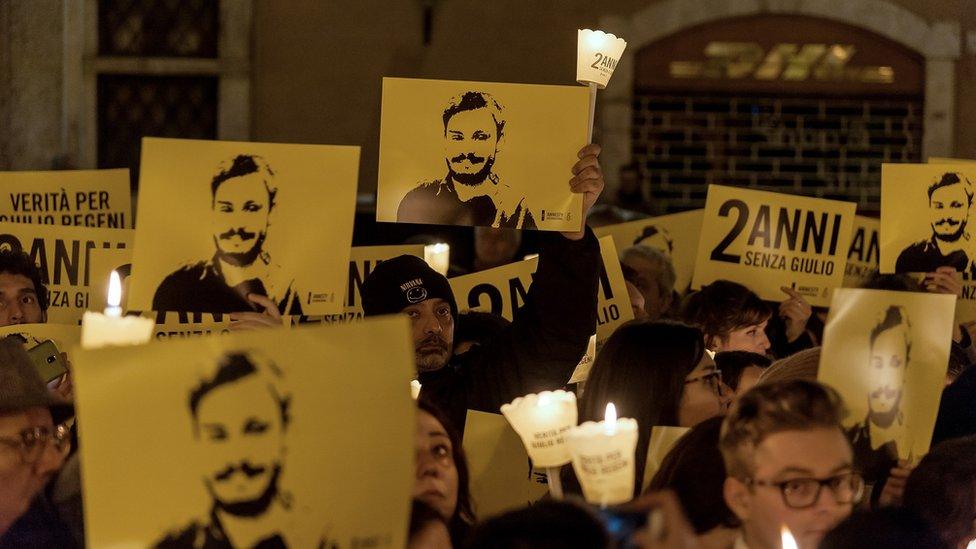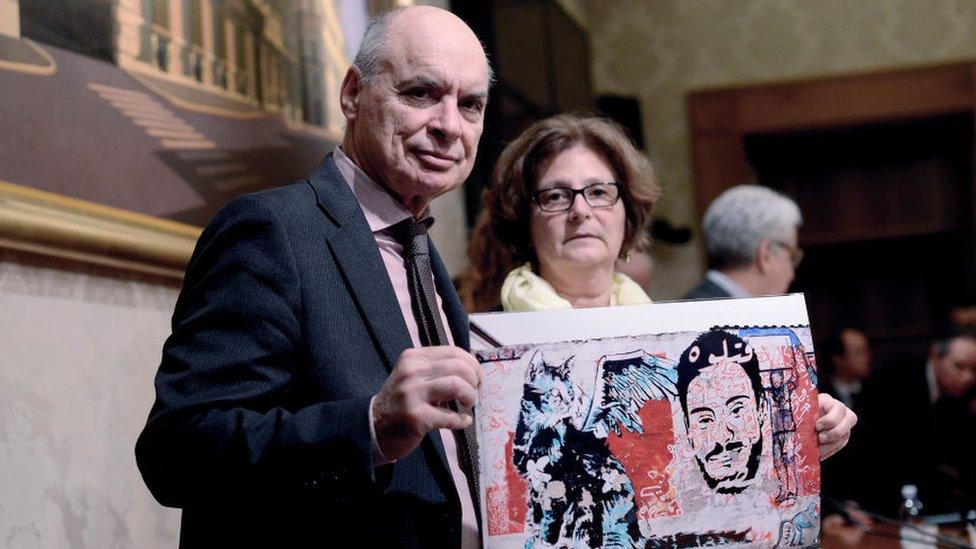Giulio Regeni: Italy condemns Egypt for ruling out charges against police
- Published

Giulio Regeni's murder has sparked protests in Italy
Italy has condemned Egypt's decision to rule out charging five state security officers over the torture and murder of an Italian student near Cairo.
Earlier this year Italian prosecutors named four suspects believed to be behind the death of Giulio Regeni.
But this week Egypt's public prosecutors said there was insufficient evidence against the group.
Egyptian authorities have previously denied that any of their officials were involved in Regeni's kidnap and murder.
They have suggested other explanations - including that he was the victim of a robbery by a criminal gang, or a gay crime of passion. Italian officials have dismissed these theories.
Mr Regeni, a Cambridge University student, had been researching independent trade unions, a sensitive issue in Egypt.
His murder has caused a diplomatic row, with Italian prosecutors accusing Egyptian officials of trying to mislead the investigation.
Earlier this year, Egypt's public prosecutor said it was "temporarily closing" its investigation, with Mr Regeni's killer "still unknown".
What has Italy said?
On 1 December, Italian prosecutors formally accused four suspects over Mr Regeni's death - Gen Tareq Sabir, Col Ather Kamal, Maj Magdi Sharif and Col Hisham Helmy.

Regeni's mutilated body was left in a ditch on the outskirts of Cairo
But on Wednesday Egyptian public prosecutor Hamada al-Sawy said he had "ruled out" out charging the group, along with a fifth officer.
Mr al-Sawy also said there was no intention of pursuing a criminal case "because the perpetrator is unknown."
In a statement, Italy's foreign ministry called the decision "unacceptable," and said it would "continue to act in all forums, including the European Union, so that the truth about the barbaric murder of Giulio Regeni can finally emerge."
What happened to Giulio Regeni?
The PhD student disappeared on a research trip on 25 January 2016 - the fifth anniversary of the start of the uprising against former President Hosni Mubarak, meaning there was a heavy police presence in Cairo.

Giulio Regeni's parents, Claudio and Paola, have campaigned for justice for their son
His body was discovered on 3 February in a ditch by the side of a road. His mother told the Italian parliament in 2018 that her son's body was so disfigured that she was only able to identify him by the tip of his nose.
An Italian post-mortem examination found that Regeni had been tortured "in stages" between 25 January and the day of his death.
Egypt's disappeared (Video from 2016)
Injuries suggested "kicks, fists, sticks and clubs" had been used and that he died from a broken neck, prosecutors said.
Egypt has denied that Regeni died in custody although officials have admitted that security services were monitoring him.
Related topics
- Published10 December 2020

- Published4 December 2018

- Published26 January 2018

- Published17 January 2018
